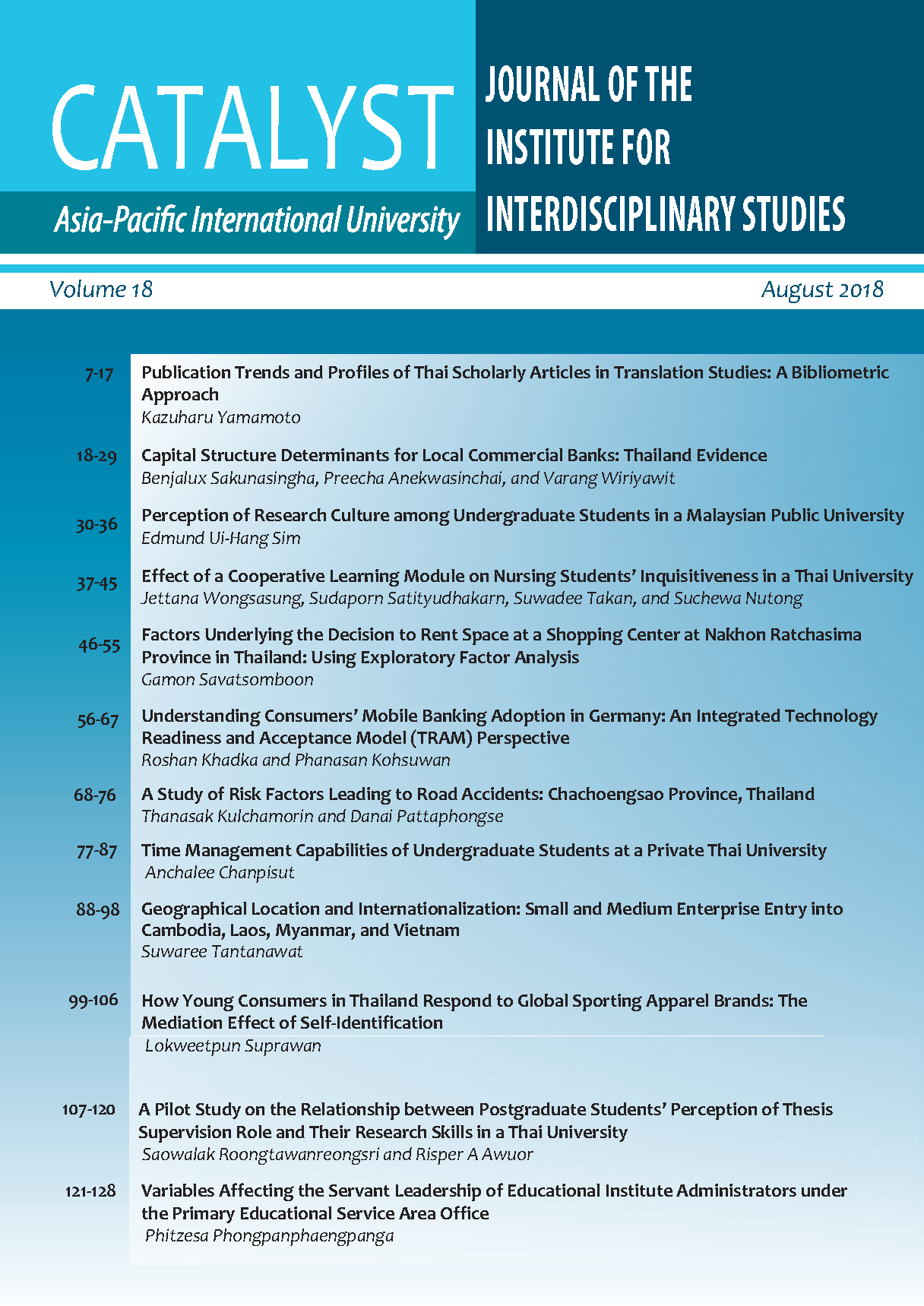Perception of Research Culture among Undergraduate Students in a Malaysian Public University
Main Article Content
Abstract
Studies on research culture often focus on how administrators and academics inculcate this culture and what impact it has on undergraduates. Evidently, literature information on undergraduates’ perception of university research and publication agenda is lacking. Considering the fact that the campus community comprises largely of an undergraduate population and their activities, facts and conjectures alluding to research culture can be misleading without the views of undergraduate students. The study investigated the perception of research culture among undergraduate students in a Malaysian public university. The objectives of the study were to examine the students’ awareness of the research culture of the university, ranging from the research culture of the university as per the lecturers to the research reputation of the university. A survey was carried out using questionnaires incorporated within the e-learning platform (Morpheus) of a taught course on scientific communication. The analysis of questionnaire data from 56 students showed that undergraduates are more aware of research than publication matters. They do not think that good research correlates with better teaching. Local students are also indifferent to issues of university ranking. Our findings provide the basis for rethinking and deriving more accurate explanations of research culture appreciation in local public universities.
Article Details

This work is licensed under a Creative Commons Attribution-NonCommercial-NoDerivatives 4.0 International License.
Copyright: Asia-Pacific International University reserve exclusive rights to publish, reproduce and distribute the manuscript and all contents therein.
References
Cain, A. (2002). Archimedes, reading, and the sustenance of academic research culture in library instruction. The Journal of Academic Librarianship, 28(3), 115-121. Retrieved from https://doi.org/ 10.1016/S00991333(01)00303-2.
Feuer, M., Towne, L., & Shavelson, R. (2002). Scientific culture and educational research. Educational researcher, 31(8), 4-14. Retrieved from https://doi.org/10.3102/0013189X031008004.
Garde-Hansen, J., & Calvert, B. (2007). Developing a research culture in the undergraduate curriculum. Active Learning in Higher Education, 8(2), 105-116. Retrieved from https://doi.org/10.1177/ 1469787407077984.
Hattie, J., & Marsh, H. (1996). The relationship between research and teaching: A meta-analysis. Review of Educational Research, 66(4), 507-542. Retrieved from https://doi.org/10.3102/00346543066004507.
James, R., Baldwin, G., & McInnis, C. (1999). Which University? The factors influencing the choices of prospective undergraduates. Department of Education, Training and Youth Affairs, Canberra, 99(3). Retrieved from http://hdl.voced.edu.au/10707/145317.
Marsh, H., & Hattie, J. (2002). The relation between research productivity and teaching effectiveness: Complementary, antagonistic, or independent constructs? The Journal of Higher Education, 73(5), 603641.
Mnookin, J., Cole, S., Dror, I., Fisher, B., Houck, M., Inman, K. Stoney, D. (2011). The need for a research culture in the forensic sciences. UCLA Law Review, 58 (3), 725-779. Retrieved from https://www.uclalawreview. org/pdf/58-3-3.pdf.
Nosek, B., Alter, G., Banks, G., Borsboom, D., Bowman, S., Breckler, S. Yarkoni, T. (2015). Promoting an open research culture. Science, 348(6242), 1422-1425.
Shi, Y., & Rao, Y. (2010). China's research culture. Science, 329(5996), 1128. Retrieved from https:// doi: 10.1126/science.1196916.
Sim, E. (2010). Vital statistics for restoring true academia. Bulletin of Higher Education Research, 16, 6-8.
Wynne, B. (1992). Public understanding of science research: new horizons or hall of mirrors? Public Understanding of Science, 1(1), 37-43.


